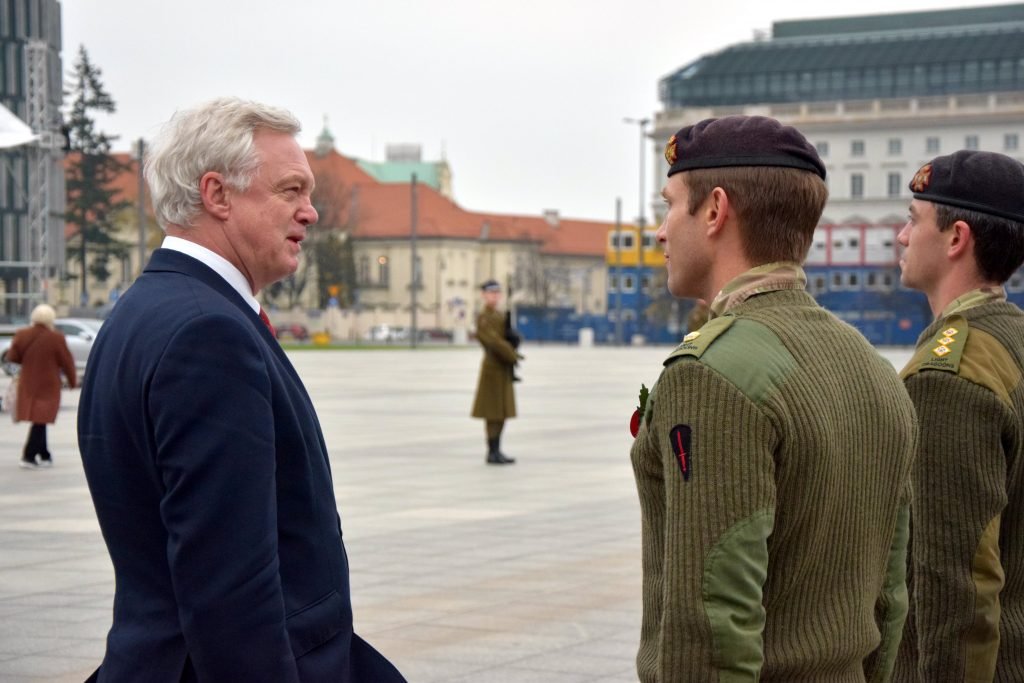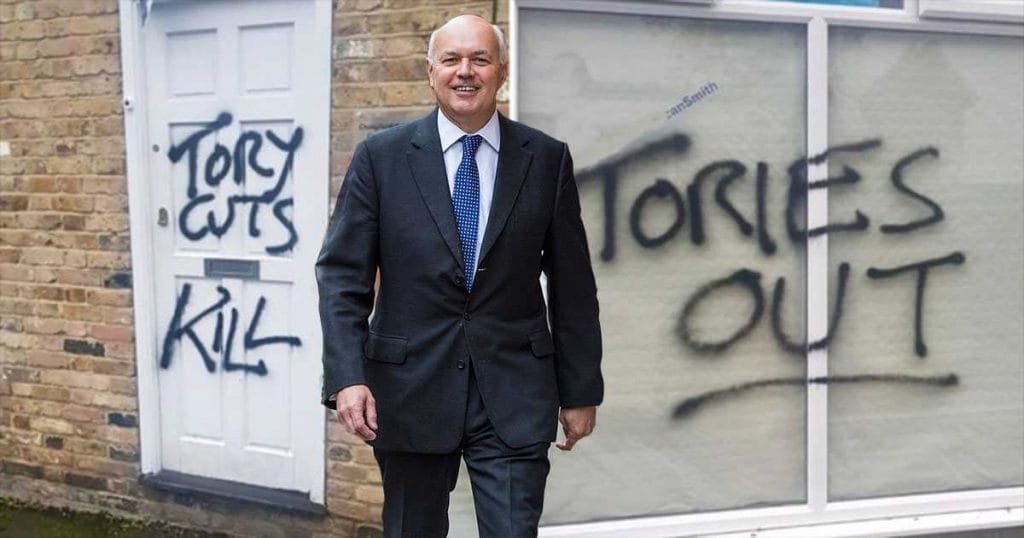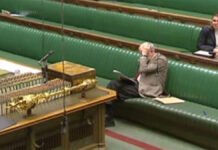Boris Johnson faces a major Tory revolt this week over plans to allow children to be used as spies by state agencies against their parents.
If this bill passes it could allow scores of Government bodies, the armed forces and even the gambling regulator to legally be allowed to use child spies – including against their parents.
Police and the security services are among those who will be allowed to use under-18s as covert human intelligence sources (CHIS) under ‘exceptional circumstances’ according to official documents.
The guidance for the Covert Intelligence Bill outlines other public bodies who will be allowed to employ them as undercover agents.
As well as police, MI5, MI6 and the National Crime Agency, they include the Gambling Commission, county and district councils, the Environment Agency and the Food Standards Agency.
The document, which has been published online, prohibits those under 16 from being used to inform on their parents or guardians.
But it permits the use of older teenagers to be used against their own family under special circumstances.
‘In other cases, authorisations should not be granted unless the special provisions, contained within the Juveniles Order are satisfied,’ it notes.
‘A CHIS aged 16 or 17 years old should only be deployed to gather evidence against their parents or any person who has parental responsibility for them where careful consideration has been given to whether the authorisation is justified in light of that fact. In such instances the rationale must be documented by the public authority.’
Anne Longfield, the children’s commissioner, called for the use of child spies to be banned.
‘I remain to be convinced that there is ever an appropriate situation in which a child should be used as a CHIS,’ she stated.
‘This practice is not in the best interests of the child.’
The bill has already drawn heavy criticism as it passes through Parliament. In October Security Minister James Brokenshire was forced to confirm adult undercover agents will not be given a ‘licence to kill’.
Several MPs raised concerns over the scope of the Bill and the Government’s unwillingness to specify a list of the limits in the legislation, which aims to protect undercover operatives from prosecution if they are forced to break the law on operations.
The senior minister assured the House that the bill’s powers are contained in the Human Rights Act and include the right to life, prohibition of torture, and prohibition of subjecting someone to inhuman or degrading treatment.
Starmer’s policy of appeasement over opposition is a dangerous approach in democracy.

So far Sir Keir Starmer has offered no opposition to the bill and even whipped the Labour party to abstain on the bill giving it a clear route to the Lords.
It would be political suicide if Starmer allows this bill to pass, however the strategy maybe to use the Tory revolt and gain a first win for Starmer in nearly a year.
On the third reading of the bill, Dan Carden resigned from the Labour frontbench due to the Labour leaders decision to whip MPs to abstain on the controversial government’s ‘spycops’ bill.
The left-wing MP, who was appointed to Labour’s Treasury team as shadow financial secretary in April, wrote to Sir Keir Starmer confirming that he intended to vote against the covert human intelligence sources (criminal conduct) bill.
The former Unite staffer told Starmer that “as a matter of conscience I must use my voice and my vote on behalf of my constituents to object to legislation that sets dangerous new precedents on the rule of law and civil liberties”.
As a matter of conscience, I must vote against the #CHISBill tonight.
— Dan Carden MP (@DanCardenMP) October 15, 2020
I have offered my resignation from Labour’s frontbench.https://t.co/lsCa7jz3FT pic.twitter.com/x9ieefYdWa
Even the right-wing of the Tory party are opposed to the bill.

Iain Duncan Smith, the former Tory leader, and David Davis, former Brexit secretary. Both with military backgrounds, Duncan Smith having served in the Royal Scots as an officer while David Davis served as a reservist soldier in the renowned Territorial Army‘s 21 SAS (Artists) Regiment.
They are among Tory MPs backing rebel proposals to restrict the use of children as spies when the Covert Human Intelligence Source (CHIS) bill returns to the Commons.
‘Everyone I have spoken to has been horrified by it when it’s explained to them,’ said David Davis, former Brexit secretary
Mr Davis told The Telegraph the Government faces a major backlash if it pushed ahead with the plans. “Everyone I have spoken to has been horrified by it when it has been explained to them,” he said.
“It will allow 16 and 17-year-olds to spy on their parents. It also authorises them to commit crimes as well, so it needs to be extremely tightly controlled and those controls need to be greater than what the Government is proposing.”
Mr Duncan Smith said: “Once you start taking action like this to put spies in people’s homes whatever the purpose, this does have complications. It is very important for Government to recognise that this is not something that should be easily done in a democratic state.”

The Government was defeated on its plans in the Lords by 339 to 254 votes earlier this month but now plans to try to overturn the peers’ amendment this week in the Commons when the CHIS bill returns to be considered by MPs.
Even if the Government wins, it is likely to lead to a major Commons versus Lords ‘ping-pong’ battle because of the scale of opposition in the upper house which was led by Lord Young, a former Tory chief whip and cabinet minister.
Opponents comprised 13 Tories, including former Cabinet ministers Lord Randall, Lord Garnier, a former solicitor general, and Baroness Warsi, as well as 79 crossbenchers, four bishops, the Labour Party and Liberal Democrats.
Among the crossbenchers opposed was former Cabinet Secretary Lord Butler, former independent reviewer of terrorism laws Lord Anderson, former national security adviser Lord Ricketts, Lord Janvrin, the Queen’s former private secretary, former Archbishop of Canterbury Lord Carey, and ex-permanent secretaries and ambassadors.
The Government’s CHIS bill allows children to be used as undercover spies by more than 20 state agencies.
Covert child agents can break the law if it means they will be able to glean information that could prevent or detect crime, protect public health, safety, or national security or help collect taxes, says the guidance, quietly laid by the Government this month.
Older children aged 16 and 17 could even be recruited to spy on their parents if they were suspected of being involved in crime or terrorism.
However, the guidance said child spies should only be recruited or deployed in “exceptional circumstances,” with their handlers required to give “primary consideration” to the need to “safeguard and promote the best interests of the juvenile”.
Critics said the Government’s safeguards did not go far enough and in the Lords passed the amendment which would prevent their deployment if there was a risk of “any foreseeable harm”.
The Government plans to overturn the amendment this week, because it claims the restrictions it imposes could backfire by making it more difficult even to extricate children from county lines gangs.
“We must make sure that we get the safeguards right, otherwise we risk making the capability unworkable which would put children at further risk,” said a Government source.
Labour MP Stella Creasy, who has led the parliamentary campaign against the plan, said: “If your 16 or 17-year-old child was arrested for shoplifting, the police would have tell you and ensure an appropriate adult was there when you spoke to them.
“But here they are creating a loophole to recruit child spies without any such protection. The Government faces strong opposition in the Lords and in the Commons too and must urgently rethink their plans.”
Help Us Sustain Ad-Free Journalism
Sorry, I Need To Put Out the Begging Bowl
Independent Journalism Needs You
Our unwavering dedication is to provide you with unbiased news, diverse perspectives, and insightful opinions. We're on a mission to ensure that those in positions of power are held accountable for their actions, but we can't do it alone. Labour Heartlands is primarily funded by me, Paul Knaggs, and by the generous contributions of readers like you. Your donations keep us going and help us uphold the principles of independent journalism. Join us in our quest for truth, transparency, and accountability – donate today and be a part of our mission!
Like everyone else, we're facing challenges, and we need your help to stay online and continue providing crucial journalism. Every contribution, no matter how small, goes a long way in helping us thrive. By becoming one of our donors, you become a vital part of our mission to uncover the truth and uphold the values of democracy.
While we maintain our independence from political affiliations, we stand united against corruption, injustice, and the erosion of free speech, truth, and democracy. We believe in the power of accurate information in a democracy, and we consider facts non-negotiable.
Your support, no matter the amount, can make a significant impact. Together, we can make a difference and continue our journey toward a more informed and just society.
Thank you for supporting Labour Heartlands












